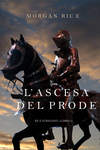Kitabı oku: «The Two Magics: The Turn of the Screw, Covering End», sayfa 12
III
She was indeed an apparition, a presence requiring announcement and explanation just in the degree in which it seemed to show itself in a relation quite of its own to all social preliminaries. It evidently either assumed them to be already over or wished to forestall them altogether; what was clear at any rate was that it allowed them scant existence. She was young, tall, radiant, lovely, and dressed in a manner determined at once, obviously, by the fact and by the humour of her journey—it might have proclaimed her so a pilgrim or so set her up as a priestess. Most journeys, for this lady, at all events, were clearly a brush of Paris. “Did you think I had got snapped down in an old box like that poor girl—what’s her name? the one who was poking round too—in the celebrated poem? You dear, delightful man, why didn’t you tell me?”
“Tell you, mum–?”
“Well, that you’re so perfectly—perfect! You’re ever so much better than anyone has ever said. Why, in the name of common sense, has nobody ever said anything? You’re everything in the world you ought to be, and not the shade of a shade of anything you oughtn’t!”
It was a higher character to be turned out with than poor Chivers had ever dreamed. “Well, mum, I try!” he gaped.
“Oh, no, you don’t—that’s just your charm! I try,” cried his friend, “but you do nothing: here you simply are—you can’t help it!”
He stood overwhelmed. “Me, mum?”
She took him in at the eyes—she could take everything at once. “Yes, you too, you positive old picture! I’ve seen the old masters—but you’re the old master!”
“The master—I?” He fairly fell back.
“‘The good and faithful servant’—Rembrandt van Rhyn: with three stars. That’s what you are!” Nothing would have been more droll to a spectator than her manner of meeting his humbleness, or more charming indeed than the practical sweetness of her want of imagination of it. “The house is a vision of beauty, and you’re simply worthy of the house. I can’t say more for you!”
“I find it a bit of a strain, mum,” Chivers candidly replied, “to keep up—fairly to call it—with what you do say.”
“That’s just what everyone finds it!”—she broke into the happiest laugh. “Yet I haven’t come here to suffer in silence, you know—to suffer, I mean, from envy and despair.” She was in constant movement, from side to side, observing, comparing, returning, taking notes while she gossiped and gossiping, too, for remembrance. The intention of remembrance even had in it, however, some prevision of failure or some alloy of irritation. “You’re so fatally right and so deadly complete, all the same, that I can really scarcely bear it: with every fascinating feature that I had already heard of and thought I was prepared for, and ever so many others that, strange to say, I hadn’t and wasn’t, and that you just spring right at me like a series of things going off. What do you call it,” she asked—“a royal salute, a hundred guns?”
Her enthusiasm had a bewildering form, but it had by this time warmed the air, and the old man rubbed his hands as over a fire to which the bellows had been applied. “I saw as soon as you arrived, mum, that you were looking for more things than ever I heard tell of!”
“Oh, I had got you by heart,” she returned, “from books and drawings and photos; I had you in my pocket when I came: so, you see, as soon as you were so good as to give me my head and let me loose, I knew my way about. It’s all here, every inch of it,” she competently continued, “and now at last I can do what I want!”
A light of consternation, at this, just glimmered in Chivers’s face. “And pray, mum, what might that be?”
“Why, take you right back with me—to Missoura Top.”
This answer seemed to fix his bewilderment, but he was there for the general convenience.
“Do I understand you, mum, that you require to take me?”
Her particular convenience, on the spot, embraced him, so new and delightful a sense had he suddenly read into her words. “Do you mean to say you’d come—as the old Family Servant? Then do, you nice real thing: it’s just what I’m dying for—an old Family Servant! You’re somebody’s else, yes—but everything, over here, is somebody’s else, and I want, too, a first-rate second-hand one, all ready made, as you are, but not too much done up. You’re the best I’ve seen yet, and I wish I could have you packed—put up in paper and bran—as I shall have my old pot there.” She whisked about, remembering, recovering, eager: “Don’t let me forget my precious pot!” Excited, with quick transitions, she quite sociably appealed to her companion, who shuffled sympathetically to where, out of harm, the object had been placed on a table. “Don’t you just love old crockery? That’s awfully sweet old Chelsea.”
He took up the piece with tenderness, though, in his general agitation, not perhaps with all the caution with which, for daily service, he handled ancient frailties. He at any rate turned on this fresh subject an interested, puzzled eye. “Where is it I’ve known this very bit—though not to say, as you do, by name?” Suddenly it came to him. “In the pew-opener’s front parlour!”
“No,” his interlocutress cried, “in the pew-opener’s best bedroom: on the old chest of drawers, you know—with those ducks of brass handles. I’ve got the handles too—I mean the whole thing; and the brass fender and fire-irons, and the chair her grandmother died in. Not in the fly,” she added—“it was such a bore that they have to be sent.”
Chivers, with the pot still in his hands, fairly rocked in the high wind of so much confidence and such great transactions. He had nothing for these, however, but approval. “You did right to take this out, mum, when the fly went to the stables. Them flymen do be cruel rash with anything that’s delicate.” Of the delicacy of the vessel it now rested with him to deposit safely again he was by this time so appreciatively aware that in returning with it to its safe niche he stumbled into some obscure trap literally laid for him by his nervousness. It was the matter of a few seconds, of a false movement, a knock of the elbow, a gasp, a shriek, a complete little crash. There was the pot on the pavement, in several pieces, and the clumsy cup-bearer blue with fear. “Mercy on us, mum,—I’ve brought shame on my old grey hairs!”
The little shriek of his companion had smothered itself in the utterance, and the next minute, with the ruin between them, they were contrastedly face to face. The charming woman, who had already found more voices in the air than anyone had found before, could, in the happy play of this power, find a poetry in her accident. “Oh, but the way you take it!” she laughed—“you’re too quaint to live!” She looked at him as if he alone had suffered—as if his suffering indeed positively added to his charm. “The way you said that now—it’s just the very ‘type’! That’s all I want of you now—to be the very type. It’s what you are, you poor dear thing—for you can’t help it; and it’s what everything and everyone else is, over here; so that you had just better all make up your minds to it and not try to shirk it. There was a type in the train with me—the ‘awfully nice girl’ of all the English novels, the ‘simple maiden in her flower’ of—who is it?—your great poet. She couldn’t help it either—in fact I wouldn’t have let her!” With this, while Chivers picked up his fragments, his lady had a happy recall. His face, as he stood there with the shapeless elements of his humiliation fairly rattling again in his hands, was a reflection of her extraordinary manner of enlarging the subject, or rather, more beneficently perhaps, the space that contained it. “By the way, the girl was coming right here. Has she come?”
Chivers crept solemnly away, as if to bury his dead, which he consigned, with dumb rites, to a situation of honourable publicity; then, as he came back, he replied without elation: “Miss Prodmore is here, mum. She’s having her tea.”
This, for his friend, was a confirmatory touch to be fitted with eagerness into the picture. “Yes, that’s exactly it—they’re always having their tea!”
“With Mr. Prodmore—in the morning-room,” the old man supplemented. “Captain Yule’s in the garden.”
“Captain Yule?”
“The new master. He’s also just arrived.”
The wonderful lady gave an immediate “Oh!” to the effect of which her silence for another moment seemed to add. “She didn’t tell me about him.”
“Well, mum,” said Chivers, “it do be a strange thing to tell. He had never—like, mum—so much as seen the place.”
“Before today—his very own?” This too, for the visitor, was an impression among impressions, and, like most of her others, it ended after an instant as a laugh. “Well, I hope he likes it!”
“I haven’t seen many, mum,” Chivers boldly declared, “that like it as much as you.”
She made with her handsome head a motion that appeared to signify still deeper things than he had caught. Her beautiful wondering eyes played high and low, like the flight of an imprisoned swallow, then, as she sank upon a seat, dropped at last as if the creature were bruised with its limits. “I should like it still better if it were my very own!”
“Well, mum,” Chivers sighed, “if it wasn’t against my duty I could wish indeed it were! But the Captain, mum,” he conscientiously added, “is the lawful heir.”
It was a wonder what she found in whatever he said; he touched with every word the spring of her friendly joy. “That’s another of your lovely old things—I adore your lawful heirs!” She appeared to have, about everything that came up, a general lucid vision that almost glorified the particular case. “He has come to take possession?”
Chivers accepted, for the credit of the house, this sustaining suggestion. “He’s a-taking of it now.”
This evoked, for his companion, an instantaneous show. “What does he do and how does he do it? Can’t I see?” She was all impatience, but she dropped to disappointment as her guide looked blank. “There’s no grand fuss–?”
“I scarce think him, mum,” Chivers with propriety hastened to respond, “the gentleman to make any about anything.”
She had to resign herself, but she smiled as she thought. “Well, perhaps I like them better when they don’t!” She had clearly a great range of taste, and it all came out in the wistfulness with which, before the notice apparently served on her, she prepared to make way. “I also”—she lingered and sighed—“have taken possession!”
Poor Chivers really rose to her. “It was you, mum,” he smiled, “took it first!”
She sadly shook her head. “Ah, but for a poor little hour! He’s for life.”
The old man gave up, after a little, with equal depression, the pretence of dealing with such realities. “For mine, mum, I do at least hope.”
She made again the circuit of the great place, picking up without interest the jacket she had on her previous entrance laid down. “I shall think of you, you know, here together.” She vaguely looked about her as for anything else to take; then abruptly, with her eyes again on Chivers: “Do you suppose he’ll be kind to you?”
His hand, in his trousers-pocket, seemed to turn the matter over. “He has already been, mum.”
“Then be sure to be so to him!” she replied with some emphasis. The house-bell sounded as she spoke, giving her quickly another thought. “Is that his bell?”
Chivers was hardly less struck. “I must see whose!”—and hurrying, on this, to the front, he presently again vanished.
His companion, left alone, stood a minute with an air in which happy possession was oddly and charmingly mingled with desperate surrender; so much as to have left you in doubt if the next of her lively motions were curiosity or disgust. Impressed, in her divided state, with a small framed plaque of enamel, she impulsively detached it from the wall and examined it with hungry tenderness. Her hovering thought was so vivid that you might almost have traced it in sound. “Why, bless me if it isn’t Limoges! I wish awfully I were a bad woman: then, I do devoutly hope, I’d just quietly take it!” It testified to the force of this temptation that on hearing a sound behind her she started like a guilty thing; recovering herself, however, and—just, of course, not to appear at fault—keeping the object familiarly in her hand as she jumped to a recognition of the gentleman who, coming in from the garden, had stopped in the open doorway. She gathered indeed from his being there a positive advantage, the full confidence of which was already in her charming tone. “Oh, Captain Yule, I’m delighted to meet you! It’s such a comfort to ask you if I may!”
His surprise kept him an instant dumb, but the effort not too closely to betray it appeared in his persuasive inflection. “If you ‘may,’ madam–?”
“Why, just be here, don’t you know? and poke round!” She presented such a course as almost vulgarly natural. “Don’t tell me I can’t now, because I already have: I’ve been upstairs and downstairs and in my lady’s chamber—I won’t answer for it even perhaps that I’ve not been in my lord’s! I got round your lovely servant—if you don’t look out I’ll grab him. If you don’t look out, you know, I’ll grab everything.” She gave fair notice and went on with amazing serenity; she gathered positive gaiety from his frank stupefaction. “That’s what I came over for—just to lay your country waste. Your house is a wild old dream; and besides”—she dropped, oddly and quaintly, into real responsible judgment—“you’ve got some quite good things. Oh, yes, you have—several: don’t coyly pretend you haven’t!” Her familiarity took these flying leaps, and she alighted, as her victim must have phrased it to himself, without turning a hair. “Don’t you know you have? Just look at that!” She thrust her enamel before him, but he took it and held it so blankly, with an attention so absorbed in the mere woman, that at the sight of his manner her zeal for his interest and her pity for his detachment again flashed out. “Don’t you know anything? Why, it’s Limoges!”
Clement Yule simply broke into a laugh—though his laugh indeed was comprehensive. “It seems absurd, but I’m not in the least acquainted with my house. I’ve never happened to see it.”
She seized his arm. “Then do let me show it to you!”
“I shall be delighted.” His laughter had redoubled in a way that spoke of his previous tension; yet his tone, as he saw Chivers return breathless from the front, showed that he had responded sincerely enough to desire a clear field. “Who in the world’s there?”
The old man was full of it. “A party!”
“A party?”
Chivers confessed to the worst. “Over from Gossage—to see the house.”
The worst, however, clearly, was quite good enough for their companion, who embraced the incident with sudden enthusiasm. “Oh, let me show it!” But before either of the men could reply she had, addressing herself to Chivers, one of those droll drops that betrayed the quickness of her wit and the freedom of her fancy. “Dear me, I forgot—you get the tips! But, you dear old creature,” she went on, “I’ll get them, too, and I’ll simply make them over to you.” She again pressed Yule—pressed him into this service. “Perhaps they’ll be bigger—for me!”
He continued to be highly amused. “I should think they’d be enormous—for you! But I should like,” he added with more concentration—“I should like extremely, you know, to go over with you alone.”
She was held a moment. “Just you and me?”
“Just you and me—as you kindly proposed.”
She stood reminded; but, throwing it off, she had her first inconsequence. “That must be for after–!”
“Ah, but not too late.” He looked at his watch. “I go back tonight.”
“Laws, sir!” Chivers irrepressibly groaned.
“You want to keep him?” the stranger asked. Captain Yule turned away at the question, but her look went after him, and she found herself, somehow, instantly answered. “Then I’ll help you,” she said to Chivers; “and the oftener we go over the better.”
Something further, on this, quite immaterial, but quite adequate, passed, while the young man’s back was turned, between the two others; in consequence of which Chivers again appealed to his master. “Shall I show them straight in, sir?”
His master, still detached, replied without looking at him. “By all means—if there’s money in it!” This was jocose, but there would have been, for an observer, an increase of hope in the old man’s departing step. The lady had exerted an influence.
She continued, for that matter, with a start of genial remembrance, to exert one in his absence. “Oh, and I promised to show it to Miss Prodmore!” Her conscience, with a kind smile for the young person she named, put the question to Clement Yule. “Won’t you call her?”
The coldness of his quick response made it practically none. “‘Call’ her? Dear lady, I don’t know her!”
“You must, then—she’s wonderful.” The face with which he met this drew from the dear lady a sharper look; but, for the aid of her good-nature, Cora Prodmore, at the moment she spoke, presented herself in the doorway of the morning-room. “See? She’s charming!” The girl, with a glare of recognition, dashed across the open as if under heavy fire; but heavy fire, alas—the extremity of exposure—was promptly embodied in her friend’s public embrace. “Miss Prodmore,” said this terrible friend, “let me present Captain Yule.” Never had so great a gulf been bridged in so free a span. “Captain Yule, Miss Prodmore. Miss Prodmore, Captain Yule.”
There was stiffness, the cold mask of terror, in such notice as either party took of this demonstration, the convenience of which was not enhanced for the divided pair by the perception that Mr. Prodmore had now followed his daughter. Cora threw herself confusedly into it indeed, as with a vain rebound into the open. “Papa, let me ‘present’ you to Mrs. Gracedew. Mrs. Gracedew, Mr. Prodmore. Mr. Prodmore, Mrs. Gracedew.”
Mrs. Gracedew, with a free salute and a distinct repetition, took in Mr. Prodmore as she had taken everything else. “Mr. Prodmore”—oh, she pronounced him, spared him nothing of himself. “So happy to meet your daughter’s father. Your daughter’s so perfect a specimen.”
Mr. Prodmore, for the first moment, had simply looked large and at sea; then, like a practical man and without more question, had quickly seized the long perch held out to him in this statement. “So perfect a specimen, yes!”—he seemed to pass it on to his young friend.
Mrs. Gracedew, if she observed his emphasis, drew from it no deterrence; she only continued to cover Cora with a gaze that kept her well in the middle. “So fresh, so quaint, so droll!”
It was apparently a result of what had passed in the morning-room that Mr. Prodmore had grasped afresh the need for effective action, which he clearly felt he did something to meet in clutching precipitately the helping hand popped so suddenly out of space, yet so beautifully gloved and so pressingly and gracefully brandished. “So fresh, so quaint, so droll!”—he again gave Captain Yule the advantage of the stranger’s impression.
To what further appreciation this might have prompted the lady herself was not, however, just then manifest; for the return of Chivers had been almost simultaneous with the advance of the Prodmores, and it had taken place with forms that made it something of a circumstance. There was positive pomp in the way he preceded several persons of both sexes, not tourists at large, but simple sightseers of the half-holiday order, plain provincial folk already, on the spot, rather awestruck. The old man, with suppressed pulls and prayers, had drawn them up in a broken line, and the habit of more peopled years, the dull drone of the dead lesson, sounded out in his prompt beginning. The party stood close, in this manner, on one side of the apartment, while the master of the house and his little circle were grouped on the other. But as Chivers, guiding his squad, reached the centre of the space, Mrs. Gracedew, markedly moved, quite unreservedly engaged, came slowly forward to meet him. “This, ladies and gentlemen,” he mechanically quavered, “is perhaps the most important feature—the grand old feudal, baronial ’all. Being, from all accounts, the most ancient portion of the edifice, it was erected in the very earliest ages.” He paused a moment, to mark his effect, then gave a little cough which had become, obviously, in these great reaches of time, an essential part of the trick. “Some do say,” he dispassionately remarked, “in the course of the fifteenth century.”
Mrs. Gracedew, who had visibly thrown herself into the working of the charm, following him with vivid sympathy and hanging on his lips, took the liberty, at this, of quite affectionately pouncing on him. “I say in the fourteenth, my dear—you’re robbing us of a hundred years!”
Her victim yielded without a struggle. “I do seem, in them dark old centuries, sometimes to trip a little.” Yet the interruption of his ancient order distinctly discomposed him, all the more that his audience, gaping with a sense of the importance of the fine point, moved in its mass a little nearer. Thus put upon his honour, he endeavoured to address the group with a dignity undiminished. “The Gothic roof is much admired, but the west gallery is a modern addition.”
His discriminations had the note of culture, but his candour, all too promptly, struck Mrs. Gracedew as excessive. “What in the name of Methuselah do you call ‘modern’? It was here at the visit of James the First, in 1611, and is supposed to have served, in the charming detail of its ornament, as a model for several that were constructed in his reign. The great fireplace,” she handsomely conceded, “is Jacobean.”
She had taken him up with such wondrous benignant authority—as if, for her life, if they were to have it, she couldn’t help taking care that they had it out; she had interposed with an assurance that so converted her—as by the wave of a great wand, the motion of one of her own free arms—from mere passive alien to domesticated dragon, that poor Chivers could only assent with grateful obeisances. She so plunged into the old book that he had quite lost his place. The two gentlemen and the young lady, moreover, were held there by the magic of her manner. His own, as he turned again to his cluster of sightseers, took refuge in its last refinement. “The tapestry on the left Italian—the elegant wood-work Flemish.”
Mrs. Gracedew was upon him again. “Excuse me if I just deprecate a misconception. The elegant wood-work Italian—the tapestry on the left Flemish.” Suddenly she put it to him before them all, pleading as familiarly and gaily as she had done when alone with him, and looking now at the others, all round, gentry and poor folk alike, for sympathy and support. She had an idea that made her dance. “Do you really mind if I just do it? Oh, I know how: I can do quite beautifully the housekeeper last week at Castle Gaunt.” She fraternised with the company as if it were a game they must play with her, though this first stage sufficiently hushed them. “How do you do? Ain’t it thrilling?” Then with a laugh as free as if, for a disguise, she had thrown her handkerchief over her head or made an apron of her tucked-up skirt, she passed to the grand manner. “Keep well together, please—we’re not doing puss-in-the-corner. I’ve my duty to all parties—I can’t be partial to one!”
The contingent from Gossage had, after all, like most contingents, its spokesman—a very erect little personage in a very new suit and a very green necktie, with a very long face and upstanding hair. It was on an evident sense of having been practically selected for encouragement that he, in turn, made choice of a question which drew all eyes. “How many parties, now, can you manage?”
Mrs. Gracedew was superbly definite. “Two. The party up and the party down.” Chivers gasped at the way she dealt with this liberty, and his impression was conspicuously deepened as she pointed to one of the escutcheons in the high hall-window. “Observe in the centre compartment the family arms.” She did take his breath away, for before he knew it she had crossed with the lightest but surest of gestures to the black old portrait, on the opposite wall, of a long-limbed gentleman in white trunk-hose. “And observe the family legs!” Her method was wholly her own, irregular and broad; she flew, familiarly, from the pavement to the roof and then dropped from the roof to the pavement as if the whole air of the place were an element in which she floated. “Observe the suit of armour worn at Tewkesbury—observe the tattered banner carried at Blenheim.” They bobbed their heads wherever she pointed, but it would have come home to any spectator that they saw her alone. This was the case quite as much with the opposite trio—the case especially with Clement Yule, who indeed made no pretence of keeping up with her signs. It was the signs themselves he looked at—not at the subjects indicated. But he never took his eyes from her, and it was as if, at last, she had been peculiarly affected by a glimpse of his attention. All her own, for a moment, frankly went back to him and was immediately determined by it. “Observe, above all, that you’re in one of the most interesting old houses, of its type, in England; for which the ages have been tender and the generations wise: letting it change so slowly that there’s always more left than taken—living their lives in it, but letting it shape their lives!”
Though this pretty speech had been unmistakeably addressed to the younger of the temporary occupants of Covering End, it was the elder who, on the spot, took it up. “A most striking and appropriate tribute to a real historical monument!” Mr. Prodmore had a natural ease that could deal handsomely with compliments, and he manifestly, moreover, like a clever man, saw even more in such an explosion of them than fully met the ear. “You do, madam, bring the whole thing out!”
The visitor who had already with such impunity ventured had, on this, a loud renewal of boldness, but for the benefit of a near neighbour. “Doesn’t she indeed, Jane, bring it out?”
Mrs. Gracedew, with a friendly laugh, caught the words in their passage. “But who in the world wants to keep it in? It isn’t a secret—it isn’t a strange cat or a political party!” The housekeeper, as she talked, had already dropped from her; her sense of the place was too fresh for control, though instead of half an hour it might have taken six months to become so fond. She soared again, at random, to the noble spring of the roof. “Just look at those lovely lines!” They all looked, all but Clement Yule, and several of the larger company, subdued, overwhelmed, nudged each other with strange sounds. Wherever she turned Mrs. Gracedew appeared to find a pretext for breaking out. “Just look at the tone of that glass, and the gilding of that leather, and the cutting of that oak, and the dear old flags of the very floor.” It came back, came back easily, her impulse to appeal to the lawful heir, and she seemed, with her smile of universal intelligence, just to demand the charity of another moment for it. “To look, in this place, is to love!”
A voice from the party she had in hand took it up with an artless guffaw that resounded more than had doubtless been meant and that, at any rate, was evidently the accompaniment of some private pinch applied to one of the ladies. “I say—to love!”
It was one of the ladies who very properly replied. “It depends on who you look at!”
Mr. Prodmore, in the geniality of the hour, made his profit of the simple joke. “Do you hear that, Captain? You must look at the right person!”
Mrs. Gracedew certainly had not been looking at the wrong one. “I don’t think Captain Yule cares. He doesn’t do justice–!”
Though her face was still gay, she had faltered, which seemed to strike the young man even more than if she had gone on. “To what, madam?”
Well, on the chance she let him have it. “To the value of your house.”
He took it beautifully. “I like to hear you express it!”
“I can’t express it!” She once more looked all round, and so much more gravely than she had yet done that she might have appeared in trouble. She tried but, with a sigh, broke down. “It’s too inexpressible!”
This was a view of the case to which Mr. Prodmore, for his own reasons, was not prepared to assent. Expression and formulation were what he naturally most desired, and he had just encountered a fountain of these things that he couldn’t prematurely suffer to fail him. “Do what you can for it, madam. It would bring it quite home.”
Thus excited, she gave with sudden sombre clearness another try. “Well—the value’s a fancy value!”
Mr. Prodmore, receiving it as more than he could have hoped, turned triumphant to his young friend. “Exactly what I told you!”
Mrs. Gracedew explained indeed as if Mr. Prodmore’s triumph was not perhaps exactly what she had argued for. Still, the truth was too great. “When a thing’s unique, it’s unique!”
That was every bit Mr. Prodmore required. “It’s unique!”
This met, moreover, the perception of the gentleman in the green necktie. “It’s unique!” They all, in fact, demonstratively—almost vociferously now—caught the point.
Mrs. Gracedew, finding herself so sustained, and still with her eyes on the lawful heirs, put it yet more strongly. “It’s worth anything you like.”
What was this but precisely what Mr. Prodmore had always striven to prove? “Anything you like!” he richly reverberated.
The pleasant discussion and the general interest seemed to bring them all together. “Twenty thousand now?” one of the gentlemen from Gossage archly inquired—a very young gentleman with an almost coaxing voice, who blushed immensely as soon as he had spoken.
He blushed still more at the way Mrs. Gracedew faced him. “I wouldn’t look at twenty thousand!”
Mr. Prodmore, on the other hand, was proportionately uplifted. “She wouldn’t look at twenty thousand!” he announced with intensity to the Captain.
The visitor who had been the first to speak gave a shrewder guess. “Thirty, then, as it stands?”
Mrs. Gracedew looked more and more responsible; she communed afresh with the place; but she too evidently had her conscience. “It would be giving it away!”




















